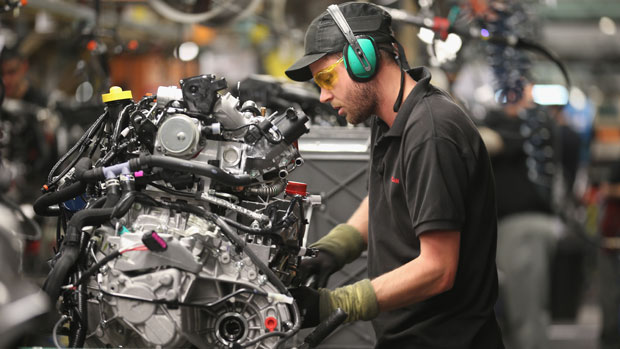Industrial revival or sweatshop UK?
UK manufacturing costs now rival those in Eastern Europe, but low-paid workers may not join the celebrations

A free daily email with the biggest news stories of the day – and the best features from TheWeek.com
You are now subscribed
Your newsletter sign-up was successful
Britain is now the 'lowest-cost manufacturing economy of Western Europe', according to a report by one of the world's leading consultancy groups, but analysts are split on whether that's entirely good news.
The combination of stable wages and improved productivity over the past ten years has made Britain "increasingly competitive even compared to many Eastern European countries", the Daily Telegraph says, but this competitiveness has brought with it lower wages, broad restructuring of existing businesses and a diversification of manufacturing, which many experts believe could present unforeseen dangers.
According to recent studies, manufacturing still only accounts for a tenth of Britain's economy, compared with a fifth of the economy in Germany, Europe's biggest manufacturer. But UK factories are growing quickly.
The Week
Escape your echo chamber. Get the facts behind the news, plus analysis from multiple perspectives.

Sign up for The Week's Free Newsletters
From our morning news briefing to a weekly Good News Newsletter, get the best of The Week delivered directly to your inbox.
From our morning news briefing to a weekly Good News Newsletter, get the best of The Week delivered directly to your inbox.
Last month, Future Advanced Manufacture, one of the companies at the forefront of the UK's manufacturing revival, told Reuters that business from unexpected places was helping to drive growth.
"Even the Germans are starting to deal with us, which is unheard of," said Future AM's managing director Craig Peterson.
UK manufacturers now trade more widely than ever. After the debt crisis in the eurozone, British exporters were forced to expand into new markets, Reuters says: "Whereas China in 2007 was only the 11th largest export market for British manufacturers, last year it was the seventh".
One of the biggest drivers for manufacturing growth in the UK has been in car output, which has increased by around 50 percent since 2009, Market Watch says. This has been the direct result of cost reductions, which have helped the UK leapfrog other leading Western European exporters since 2004.
A free daily email with the biggest news stories of the day – and the best features from TheWeek.com
But does the drive to bring down the costs of UK manufacturing translate into low wages?. In January this year, Labour leader Ed Miliband criticised the UK's "chronic dependency" on cheap foreign labour, the BBC reports.
Statistics suggest that Britain is now attracting low-cost workers from across the continent. According to a report by the University of Oxford's Migration Observatory, the number of foreign-born people in total employment increased from 7.2 per cent in 1993 to 13.6 per cent in 2012.
Still, many analysts believe that taking on cheaper employees and prioritising manufacturing may be critical to country's survival as global resources begin to dry up. "In the future, 30 or 40 years from now, as the scarcity of resources comes to bite across the world, being good at manufacturing could be as important as being good at defence," Hamid Mughal, the director of manufacturing at Rolls-Royce told The Times.
While Mughal may have an interest in promoting his industry, many countries seem to agree with his view and are investing accordingly. Germany has already put €200 million into advanced manufacturing. The US is looking to rejuvenate manufacturing, with a proposed $1 billion investment. Britain is now "playing catch-up" by investing £150 million over five years.
As a result, some industry analysts are predicting a move away from the outsourcing of manufacturing. The mood is changing, says Sukand Ramachandran, a partner at the Boston Consulting Group in London. "There is a growing realisation that, all other things being equal, it may be more effective to manufacture your goods close to your customers.
"That trend has been apparent in the US for about a year and a half and we're now starting to see it in Europe too."